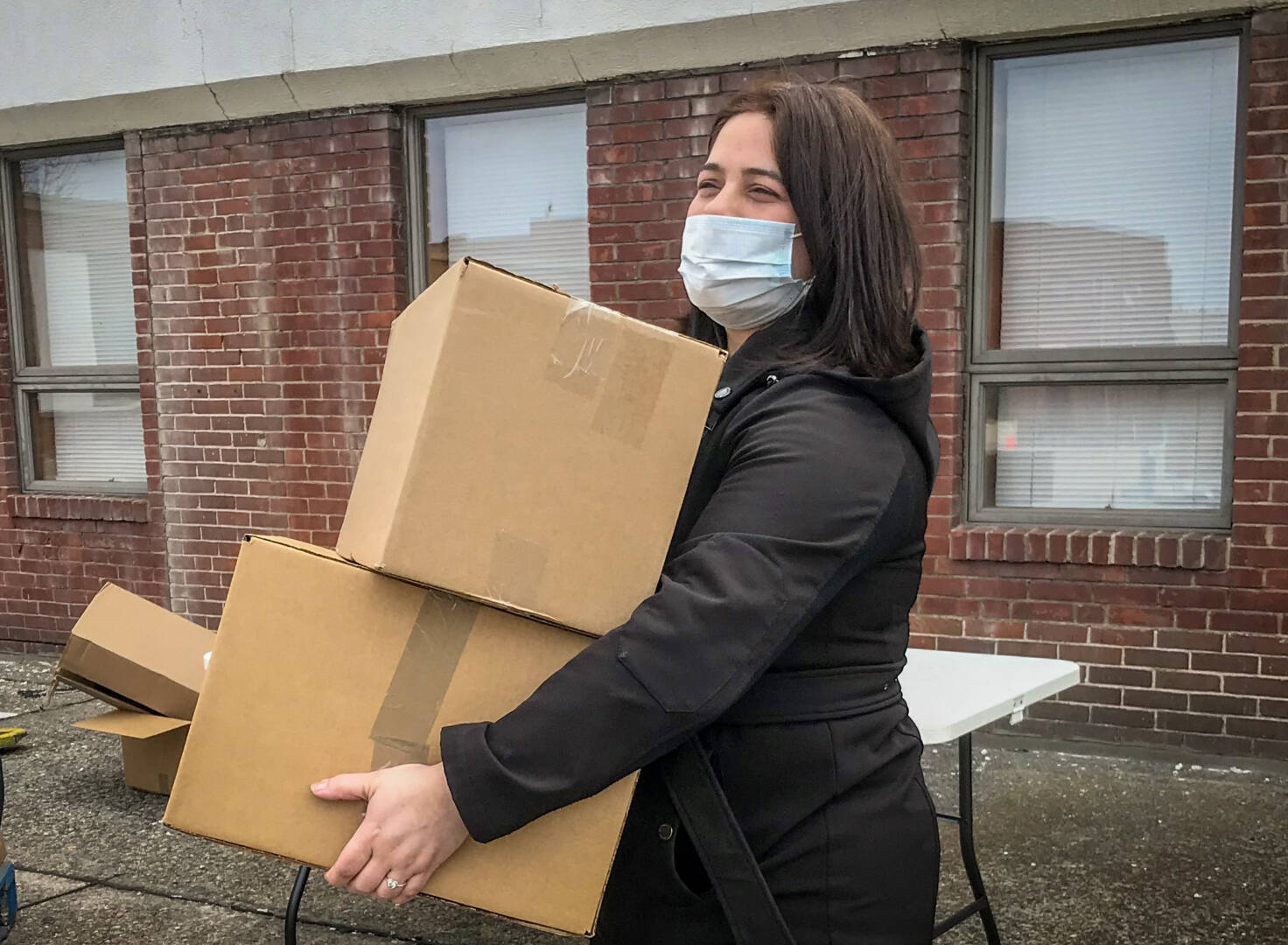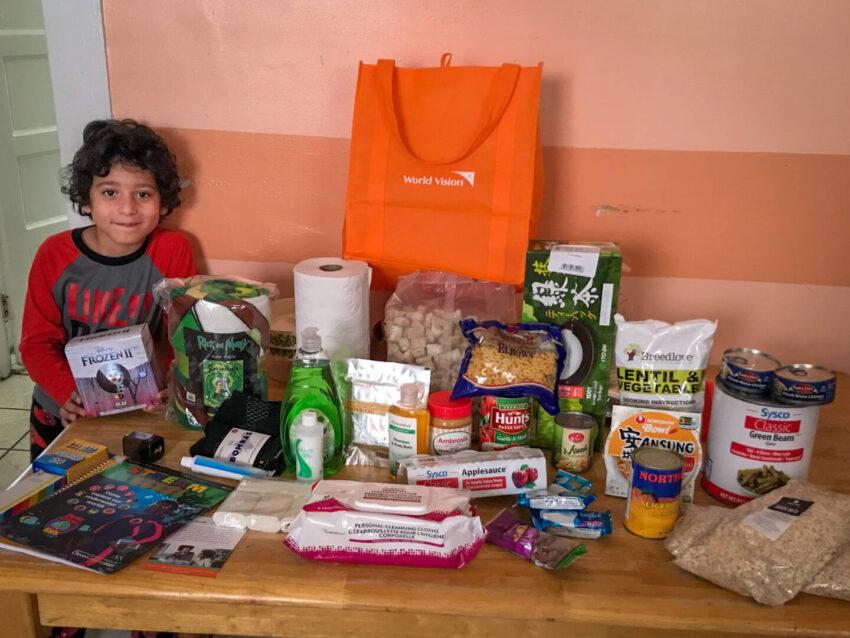Single mom Chabeli Gonzalez returned from her errand to find a message waiting on her answering machine. It came from the local school district inviting her to a distribution of food, cleaning supplies, and school supplies at a nearby church, New Dimension Christian Center in Hartford, Connecticut.
She immediately shared the news with her mother, Carmen. “My mom asked, ‘Are you serious?’” says Chabeli. “We started tearing up.”
Prior to the coronavirus pandemic, 28-year-old Chabeli worked two jobs — at a shop in her local mall during the day and in a bar on weekends — to make ends meet for herself; her 6-year-old son, Ahni; and Carmen. “This coronavirus is stressful on all of us,” she says.
Facing difficulties
It’s not the first time she’s faced difficulty. When Ahni was just 2, Chabeli and her now ex-husband took him for an appointment only to learn why Ahni wasn’t hitting his childhood milestones. The diagnosis: autism.
Doctors didn’t ever expect him to speak, but he’s defied their expectations. At age 4, he started speaking in more complete sentences. Now 6, when he gets excited, he’s very vocal. “He’s a little volcano of excitement,” says Chabeli. “We’ve come a long way.”
But she doesn’t want to jeopardize his progress or his health by exposing him to COVID-19, which is why the no-touch method of the church’s distribution felt especially important to her.
“That made me feel really better about being there,” says Chabeli. “They handed out it with love.”

An already-vulnerable community
Rosa McGuire heads up the outreach program at New Dimension Christian Center. People tell her how the coronavirus has exacerbated needs in this already-fragile community.
“With the pandemic, the situation is just escalating more. They find themselves in more critical need,” she says. “There’s great need right in our backyard. Any opportunity to reach our community and supply the needs that they have, we want to be able to reach out.”
She says that church and community members are hardworking people, but their income is low. People like Chabeli don’t have the safety of savings built up because they struggle getting by day to day.
In pre-pandemic times, the church ran a food pantry and clothing bank. Four years ago, they began partnering with World Vision’s warehouse in Hartford. “We don’t have the funds to continue to replenish what has been given away,” Rosa says. That’s where partners come in.
“With World Vision, we can continue to give,” she says. “World Vision continues to restock us.”
When Rosa got the call from World Vision to distribute Family Emergency Kits to families especially hard-hit by the coronavirus pandemic, she was more than ready to say yes. The kits are part of World Vision’s U.S. response to help alleviate the economic fallout of COVID-19 on families.
Keeping the love going
Chabeli, Carmen, and Ahni opened the box together. First, they saw rice and then a bag of oatmeal. That was especially exciting for Ahni, who Chabeli describes as a picky eater. “We made cookies for days,” she says.
And then there were the school supplies. Ahni always claimed to hate school, but now that he’s been home for so long, he misses his friends. He’s lonely, says Chabeli. The notebook, pack of pencils, and crayons drew his interest.
She says, “That was awesome. It was something for him to be able to play with.” Now every day he uses those pencils and crayons to create little notes for Chabeli that read, “I love mom.”
People “don’t really see how so little can go so far,” when they make donations, says Chabeli. Pens, pencils, and paper have brought Ahni hours of enjoyment. For her, two bags of groceries can cost $100. Now she can take the money she would’ve spent on food and get new shoes for Ahni, who’s growing fast. He seems to go through tennis shoes every four to six months.
“We don’t take the time to say thanks, job well done, [and] pat someone on the back,” Chabeli says before adding her thanks to the donors who made the distribution possible. “This definitely put food into homes that needed it. It fed our family.”
Before the partnership with World Vision, Rosa struggled with wanting to do more to help the community. “It’s exciting to be able to meet that need that we wouldn’t otherwise be able to meet,” says Rosa. “Without [the donors’] assistance we would not be able to leave such a big impression.”


